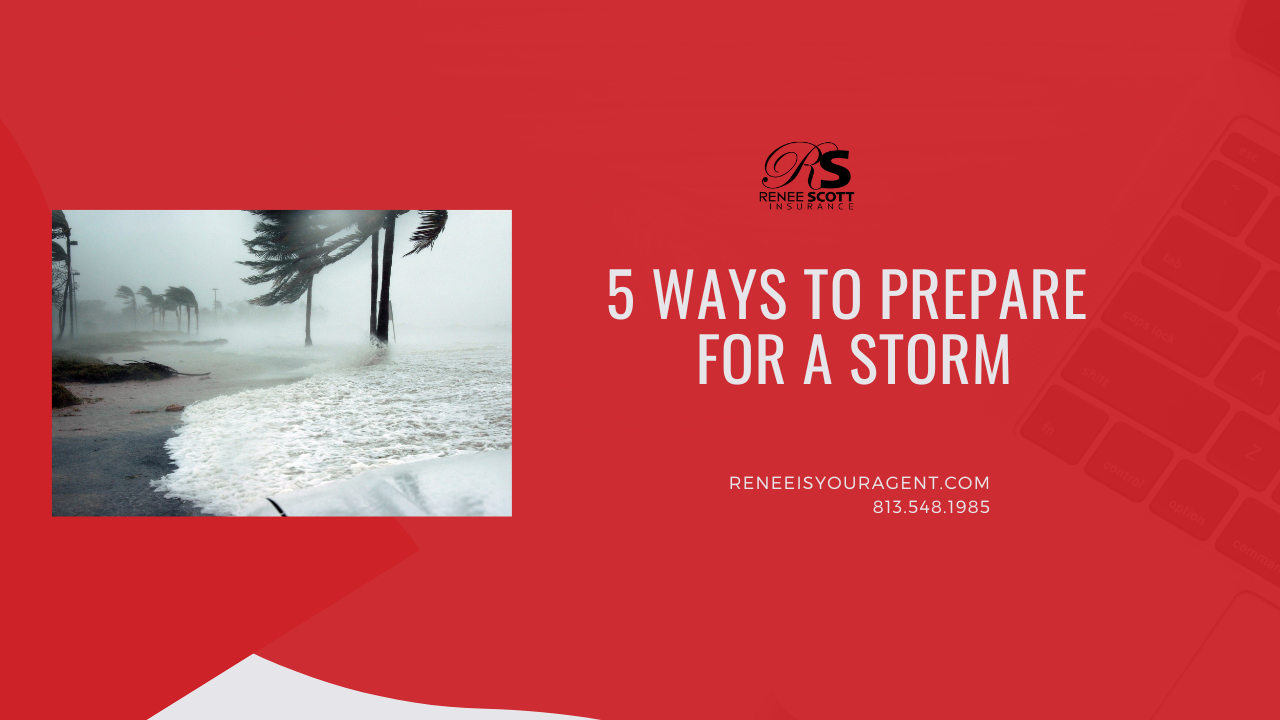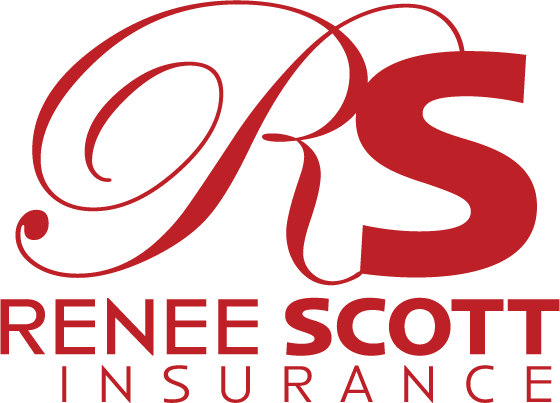CAUTION: Read Before you Sign!
Renee Scott • May 23, 2022

What is an AOB?
An Assignment of Benefits (AOB)
is an agreement between you and a third party where you transfer your rights, benefits and financial interest in an insurance policy claim to another party. It is commonly used when hiring a roofer, contractor or water mitigation company to make repairs to your property. Once the AOB is complete, your insurance company must make payment directly to the party completing repairs and you LOSE
the ability to deal directly with your insurance company for your claim. This is a legal arrangement but can allow unscrupulous contractors to submit improper claims, causing legal battles to ensue. You should ALWAYS contact your insurance company to notify them of damages before taking any action to make permanent repairs.
Warning Signs of AOB Culprits:
- Someone knocks on your door to let you know you have damage you weren't AWARE of
- Contract contains the words "Assignment of Benefit"
- Contractor offers free services such as remodeling other areas of your home NOT affected by damage
- The Vendor offers to handle your claim and pay your deductible for you
- Vendors canvassing neighborhoods
What if you Sign an AOB?
- ANY benefits received from your claim payments will go directly to the third party and not YOU
- You LOSE all decision making ability about how the damage will be repaired and how long it will take
If you feel that something isn't right, contact your insurance company immediately.

Homeowners insurance is essential for protecting your home against unforeseen events. Understanding your policy—what it covers and what it excludes—is crucial to ensuring you’re adequately protected and avoiding unnecessary expenses. This guide will help you navigate your homeowners insurance policy by highlighting the importance of reading your policy documents, asking questions, and taking preventive measures to maintain your home. What Your Typical Homeowners Insurance Policy Covers Homeowners insurance policies typically cover a range of events, protecting you from significant financial loss. Common covered events include: Storms : Policies usually cover damage from hurricanes, windstorms, and other severe weather conditions. Hail Damage : Hail can cause significant damage to roofs, windows, and siding. Fire : Fire damage is one of the primary risks covered by homeowners insurance. Falling Objects : This includes damage from falling tree branches or other objects. Vandalism : Coverage for intentional damage caused by others. Understanding these covered events is vital for ensuring your policy meets your needs. However, it’s equally important to know what is not covered. Common Insurance Policy Exclusions Not all damages are covered by homeowners insurance. Common exclusions include: Normal Wear and Tear : Insurance policies typically do not cover damages resulting from normal aging or usage of your home. Construction Defects : Issues resulting from poor construction practices are generally excluded. Foundation Failure : Structural problems with the foundation are often not covered. Pet and Animal Damage : Damage caused by pets or other animals is usually excluded. Mold and Fungus : Coverage for mold and fungus is often limited or excluded entirely. Understanding these exclusions is crucial to avoid unexpected costs. Understanding your homeowners insurance policy is crucial to saving money and ensuring you’re adequately protected. By knowing what is covered and excluded, reading your policy documents carefully, asking questions, and performing regular maintenance, you can avoid costly surprises and keep your home in excellent condition. If you’re still looking for quality home insurance coverage you can count on, you can request a quote. We are here for you!

We want you prepared in a disaster. By taking a few simple steps when the weather is fair, you'll have the peace of mind of knowing that you will be ready should disaster strike. There are many steps you can take in the days before a storm that could lessen the damage to your property. Find and review your policy . Not having enough coverage can be just as traumatic as experiencing damage to your home and personal belongings. Take a few minutes to find and review your policy to make sure you have enough coverage. Speak with our offices about your hurricane deductibles and any other questions you might have. Review your personal property coverage . Over time, we buy, sell, and replace items in our homes. Have you looked at your personal property coverage (Coverage C) on your policy lately? You'll want to have enough coverage to repair or replace your personal property in case of damage to your home and belongings. Optional replacement cost coverage for your personal property allows you to replace or repair items that were damaged or destroyed based on current market prices. Without this coverage, your items will be valued at actual cash value (ACV), which is generally less than the cost of a new item. ACV is more like the price you would see at a garage sale. We recommend purchasing replacement cost coverage for your belongings. Take photos - Exterior and Interior. In the event you sustain damage, having photos will help your Claims Adjuster adequately assess your damages. Assess your exterior . Bring loose outdoor items such as patio furniture inside. They can often blow around and cause damage to homes. Also make sure to secure all doors on your property including the garage door which is the most vulnerable. Move your car inside the garage or to another secure location. Purchases ahead of the storm . Take time now to prepare a hurricane emergency kit. Here are some items to include: Hardware Items - batteries, manual bottle openers, battery operated radio, roof tarps. Houseware Items - plastic trash bags, paper products, personal hygiene supplies, baby supplies, pet food, prescriptions, bleach, ice, bug spray. Food Items - bread, shelf stable milk, canned foods, peanut butter & jelly, cereal and granola bars, etc. We are here to answer your questions and provide advice during a weather related storm. Visit us on social media for additional tips.

We understand the concern and curiosity surrounding the recent uptick in home insurance rates across the state of Florida. We receive questions almost weekly about the reasons behind these increases. We want to demystify the complexities that drive the increase in home insurance premiums. Here are a few of the key factors influencing the current state of home insurance rates. 1. Natural Disasters : Florida is prone to hurricanes, floods, and other natural disasters. There is increased risk of property damage due to these events, leading to higher premiums. 2. Catastrophic Events History : From Hurricane Ian to Idalia, these recent catastrophic events have impacted the state, causing significant insurance claims. With many insurance carriers, these storms lead to an overall increase in insurance rates to cover the incurred costs. 3. Construction Costs : The cost of construction materials and labor has been rising, affecting the cost to rebuild or repair homes. This increase in replacement costs contributes to higher insurance premiums. 4. Regulatory Changes : Changes in insurance regulations at the state level has impacted insurance pricing. 5. More People in Florida : Higher population density in areas can increase the risk of property damage and, consequently, insurance claims. With the significant population growth in specific regions, this has contributed to rate increases. 6. Reinsurance Costs : Insurance companies often purchase reinsurance to mitigate the financial impact of large-scale events. Increases in the cost of reinsurance has affected the pricing of primary insurance policies. 7. Credit Scores and Insurance Scores : Insurance companies often use credit scores or insurance scores as a factor in determining rates. Changes in creditworthiness across the population can also influence premium adjustments. Despite the rise in insurance premiums, we have options to meet your insurance needs and discounts to apply to your home insurance premiums. We take the pain out of shopping for insurance. Give us a call today.

Thousands of customers in the state of Florida are receiving letters from state-owned Citizens Property Insurance Corporation. It’s a letter from the Depopulation Unit stating their policies have been assumed by a private market company. The letter is alarming and can be very confusing to understand. We’re here to break it down. Here are some frequently asked questions we receive. What is depopulation ? • Florida law requires that Citizens create programs to help return Citizens policies to the private market and reduce the risk of assessments for all Floridians. • The Depopulation program works with private-market insurance companies interested in offering coverage to Citizens policyholders. • Approved takeout companies can offer to take over your Citizens policy at any time during your policy period. Do I have to leave Citizens ? • Policies that receive an offer of coverage that is not more than 20% greater than Citizens' premium are ineligible to remain with Citizens. What happens if I must leave Citizens ? • If you must accept a private market offer of coverage, your policy will be assigned to the company you selected, and, in most cases, will be assumed on the assumption date indicated in your letter from Citizens. If your policy is assumed, you will receive a Notice of Assumption and Nonrenewal and Certificate of Assumption from Citizens. What if I don’t select a company online ? • Regardless of eligibility, if a choice is not registered by the date indicated in your Offer Form, Citizens will assign your policy to the private-market company that offered the lowest premium. If your policy is assumed, you will receive a Notice of Assumption and Nonrenewal and Certificate of Assumption from Citizens. We are here to answer all your questions. Give us a call today.

The beginning of the year is the perfect time to complete your annual home check-ups. As responsible homeowners, there are a few things we should do every year to ensure our home is safe and running properly. Here are a few things which should be on your check-up list this year: Conduct a Home Inspection Take time yourself, or hire a professional, to check for damage such as cracks, leaks, and breaks in the interior and exterior of your home. Should areas of your home need repair, get them fixed as soon as possible to prevent further damage. Complete Routine Maintenance There are a few tasks at home which should be completed annually and it’s best to do them all at once in the beginning of the year. Tasks such as replacing your air filter, cleaning dryer ducts, and replacing fire alarm batteries are important to keep your home running smoothly and safely. Update Your Home Inventory In the event of a loss, having a home inventory can expedite the claims process. It’s important to create a home inventory and keep it up to date throughout the year. You can easily start yours by listing your belongings and their estimated value and be sure to keep more than one copy of your inventory in a safe and protected location. You can also take a video inventory of your items and store it on multiple devices. Review Your Homeowners Insurance Coverage Make sure you have the right coverage and best pricing by reviewing your policy online or with your agent. You can always make adjustments and add additional coverage as needed. Keeping your family and home adequately insured and protected is our number one priority. Call us today or schedule an appointment to discuss your individual needs.

During my time as a captive agent with State Farm, I often asked myself, should I become an Independent Agent or remain Captive. It's a great question that you may also ask yourself. Let’s first outline what makes each of these approaches unique and more importantly why you may see one approach as more valuable for your situation. Captive Agents Major insurance carriers like Farmers, Geico and State Farm, to name a few, use captive insurance agents to sell their products. As part of the relationship between the captive carrier and the captive agent, agents in these positions can typically only sell the carrier's product lines and cannot offer additional options to their clients. Having few product lines usually is advantageous to the captive agent because they can specialize in these products. Training : Highly trained on their insurance company’s products, coverage options, policy guidelines and claim submission processes. Compensation: New agents are often provided a salary, bonus or draw for a period of time when starting their agency to support them financially while they build their agency. Commission : Nationally, commissions for captive agents are 6-10% with profit sharing opportunities. Close Ratio : Amount of quoted policies that result in a bound transaction is typically around 15-25%. Ownership & Control : While captive agents may have a buyout from their carrier, they do not own anything. They are not free to do whatever they choose with the book of business they’ve built, nor can they operate their business as they choose to. Independent Agents Independent agents are “business owners” and work for themselves. They are not exclusively contracted to work for one single insurance company and can sell policies from multiple providers. Oftentimes, independent agency owners represent 20-30 carriers dependent upon their market availability. One of the major advantages of being independent is the agent can shop around to find their customer’s the best coverage for the best rate. The following items are applicable to the independent agent: Training : Independent agency owners that are not with an alliance or group have access to carrier-level training but will be required to invest in their own specialized training to expand their product knowledge. Compensation : There are multiple lines of revenue available to the independent agent to include commissions, incentives, bonuses, profit sharing and enhanced compensation for the larger agencies. However, as a business owner, independent agents only receive compensation for activity. Commission : While captive agents on average receive 6-10% commissions on policies sold, the independent agent can receive 12-20% based on the type of policies written. Close Ratio : Number of quoted policies that result in a bound transaction is typically around 40-50% because independent agents have more markets to find their clients. Ownership & Control : Independent agents own their books of business and can transfer or sell the business to whomever they choose. Independent agents that are with an aggregator, in some cases, have unknowingly or willingly given the aggregator the control of their book ownership and are subject to the contract terms of their sponsor. So, which one is better? Captive or Independent? This question is difficult to answer because much of it depends on where you are today in your career. If you are a newly licensed agent, you may be able to greatly benefit from the support and training provided by a captive relationship. If you have plenty of experience and a track record of production, you will likely see the value of higher commissions and less oversight that an independent arrangement offers. I started both of my agencies from scratch. There are pros and cons with each offering. Schedule an appointment to learn more about my journey.

Returning to normalcy and avoiding further damages are the biggest goals following a major storm. The immediate steps after a storm can determine how quickly and smoothly you return to normal life. The storm might be over, but that doesn’t mean the danger is. Here are 5 post storm tips. Don’t drive through flood water . • Follow warnings about flooded roads. • Cars can easily be swept away. Mitigate your damages . • You have an obligation under the conditions of your homeowner’s policy to prevent further damages. • Make sure to board windows and tarp roofs in an effort protect your property. • Contact water mitigation or tree removal companies as soon as possible if needed. Use generators outside ONLY . • Never use fuel burning equipment inside the home or garage. This will prevent carbon monoxide poisoning. • Keep those items outside and at least 20 feet from any window, door, or vent. Keep receipts . • Depending on the severity of damages in your area, it may be weeks before you’re able to contact the assigned claims adjuster. • Make sure to retain housing and food receipts if your home is uninhabitable. You also want to retain receipts for temporary repairs necessary to prevent any further damage. Make a claim as soon as possible . • Visit the Insurance Customer Service Center area of our website to find the phone number to submit a claim. • Be ready to provide your name, address, phone number, policy number and general loss information. We are here to assist you with any questions or filing a claim. Call us today at 813.548.1985.

No home is completely safe from potential flooding. Just one inch of water in a home can cost more than $25,000 in damage. Flood insurance can be the difference between recovery and financial devastation. Here are answers to some common questions: I already have a homeowners insurance policy? Most homeowners insurance policies doesn’t cover flood damage. Only flood insurance covers the cost of rebuilding the home after a flood. My community has never flooded? Flooding can happen anywhere at any time. Poor drainage systems, summer storms, neighborhood construction, and broken water mains can all result in flooding. In high-risk areas, there is at least a one-in-four chance of flooding during a 30-year mortgage. I live outside of the high-risk flood area ? Even though flood insurance isn’t required for your property, flooding can happen to anyone. From 2014 to 2018, policyholders outside of high-risk flood areas filed over 40% of all NFIP flood insurance claims and required one-third of federal disaster assistance for flooding. Have questions about flood coverage? Contact our offices today to review your options. We are here to assist!

All business owners will probably need several types of commercial insurance for financial and legal reasons. A variety of incidents can threaten your business including customer slips and falls, natural disasters and employee injuries. We will briefly discuss 2 of the most requested types of business insurance. General Liability : This is the most common business insurance coverage. This provides insurance coverage for your business against claims made by others including bodily injury, damage to property, or personal injury. Consider general liability if you or your employees: • Interact with clients face to face • Have access to customer’s property • Use advertising to market your company • Require coverage to be considered for a project or contract Professional Liability : This protects businesses from claims of professional negligence, both actual or alleged, and helps pay for defense costs. It’s sometimes referred to as errors & omissions insurance (E&O). This coverage is recommended if your business: • Provides a professional service • Regularly gives advice to clients • Required to carry to complete a contract In addition to these commercial coverages, we offer the following: • Workers’ compensation (WC) • Commercial auto • Garage keepers Policies • Business Personal Property (BPP) • Business Office Policy (BOP) Let Renee Scott Insurance help take the pain out of shopping for your commercial insurance needs. Give us a call today at 813-548-1985.


